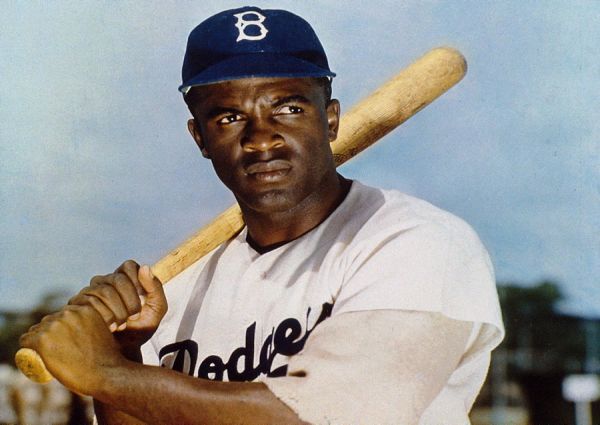The story of Jackie Robinson breaking Major League Baseball’s color barrier is well documented. It was in 1947 when Jackie made his debut, and he went on to win the Rookie of the Year award. While he would make steady improvements, it wasn’t until 1949 that Robinson would once again cross the line; however this time is was to be recognized for his stellar play by being named to the 1949 All-Star Game.
Unlike before, Jackie was not alone in this feat. Fellow teammates Roy Campanella and Don Newcombe would join him as the festivities took place right in their own backyard of Ebbets Field, home of the Brooklyn Dodgers. Campanella was in his second season as the signal caller behind the plate. It would be his first in a string of eight consecutive selections to the summer classic. In the case of Newcombe, he was just beginning a Hall of Fame career, winning 17 games while posting a 3.17 ERA en route to being named the 1949 Rookie of the Year. On the opposite side of the diamond was another yet pioneer who most often gets overshadowed by the story of Jackie Robinson. Larry Doby of the Cleveland Indians was the lone black player on the American League roster who is also credited with breaking the color barrier for the opposing league just two years prior.
While the game itself was not a thriller, nor did it carry any a significant moment in All-Star Game history, the essence of what it represented was progress in regards to race relations in America. Jackie Robinson went 1 for 4 with a walk, scoring three runs while batting second. Campanella did not start, but was inserted into the lineup in the top of the fourth, going hitless in two at-bats with an intentional walk in the bottom of the fifth. Newcombe, who would actually be tagged with the loss who after entering the game in the second inning, would give up a couple of runs allowing the American League to take the lead and never trail again. But in the wake of it all, the outcome and the statistics pale in comparison to the impact of these men playing in the game.
In a league that once bolstered an African-American player composition percentage as high as 18.7 in 1981, the number has dwindled down to 8.3 percent in 2014 according to American Baseball Research. Prior to its recent decline in the past decade, the last time baseball had such a small share of black players was 1958.
In the 2014 All-Star Game held on this past Tuesday, there were 68 players who took the field of which only five were African-American. Three starters, Andrew McCutchen of the Pittsburgh Pirates (reigning National League MVP), Adam Jones of the Baltimore Orioles, and the legendary Yankee Captain, Derek Jeter. Two reserves were selected, Michael Brantley of the Cleveland Indians and Dee Gordon of the Los Angeles Dodgers, both of whom are sons of former Major League baseball players. No pitchers.
Should it matter that in a sport that was once considered our country’s national pastime (football has now claimed that title) that African-Americans are no longer perceived as a staple in the game? One could only wonder if Jackie was alive today what his take on the matter would be. Today we look back and celebrate the accomplishment of the four gentlemen who broke into one of America’s marquee sporting events, who lead to the opening of doors for other minorities to have an opportunity to play a game that they love. Beyond African Americans, other players of color are more than taking advantage of the privilege to play Major League baseball. Hispanics account for nearly 27 percent of all baseball players while composing only 17 percent of the country’s population.
Race in sports, and in the United States for that matter, continues to be a on-going discussion as to the who, what, when, and why things are the way that they are. And while racial equality has indeed progressed significantly since the year 1949, we should also thank the likes of the four men who played a simple game and carried themselves in a way that opened doors for others to burst through it. Thank you Jackie, Roy, Don, and Larry. Your efforts will forever hold a significant place in not only baseball history, but American history. #RESPECT
Rare footage from the 1949 MLB All-Star Game:



